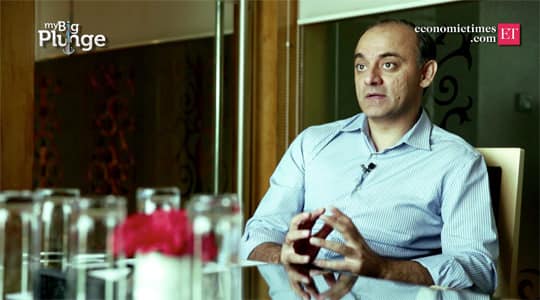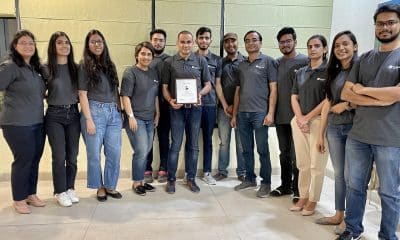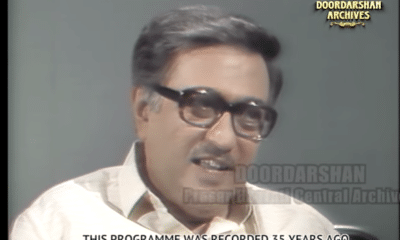In Conversation
Amit Bhatiani : Lending a shoulder behind entrepreneurs
“I look forward to finding amazing entrepreneurs and giving them all the tools they need to succeed. “ – Amit Bhatiani
Behind every successful venture are the walls and pillars of support that help an idea to become a well-executed and solid business model. These unsung heroes are the investors who are constantly looking for bright young minds who bring out fresh new ideas that not only add to the economy but also touch and improve the lives of consumers around the world.
With the start-up industry growing at a breakneck speed in India, more and more investors from both the domestic and international fronts are eyeing the country for potential start-ups and entrepreneurs that have the scope of growing fast and also add value to the market. In recent times, many notable names like Sequoia Capital and Tiger Global Management have taken part in investment rounds that have greatly benefited the expansion and consumer experience of these start-ups.
One of the newest start-ups to have taken the country by storm is PressPlay – a travel entertainment-based service that was founded by two ex-Zomato employees. Among the investors was Amit Bhatiani, an investor who understood their vision and the scope of the start-up in a market like India’s. My Big Plunge met the man himself and had a chat with him about how his journey as an investor has been, what the start-up industry needs today and how it will shape up to be in the near future.
MBP: Give us a brief introduction of who you are and where you are today.
A: I’ve been an investor and an entrepreneur for most of my life. I went to college in the United States and worked in JP Morgan for about 5 years. I started my first company when I was 25; 27 when I started my second. We took some VC for the second company so I’ve been in this space for a long time. I went back to business school and soon became an investor in public markets and private markets. Before coming back to India, I invested in global public market for about 7 years. I co-owned CX for about 7 years.
The next innings is yet to be seen as to what it is but it is definitely investing in credit, investing in early-stage, investing in public market, finding great entrepreneurs and backing them – That’s what really excites me. It’s excited me about PressPlay, it’s excited me about other things in private equity and even in public market. I look forward to finding amazing entrepreneurs and giving them all the tools they need to succeed.
MBP: How did you hear about PressPlay
A: My friend told me about Anand since he happened to go to college with him. He told me that Anand was working in Zomato but he was on to something really interesting. So I had a chat with him at my place about his vision, his passion and how we can work together. This was around November- December 2013.
MBP: So what did you like about that idea?
A: What I liked about the idea was that it was an India-specific idea. It was an idea that solved a genuine problem for millions of people in India every day. It was not a “copy-pasted” idea for India like building an Uber or AirBnB for India. It may make sense in other emerging markets but it certainly was not something that was transplanted from the west. That’s what I wanted to see – a genuine problem being solved by an entrepreneur smartly.
In the last 5 years, the cost of storage and the cost of computing power have dropped 1000 times. When technology moves at that pace, exciting business models are possible. When Anand and I spoke and understood the vast change in technology, the cost of tablet and storage had become nothing. So we felt like a really interesting business model was possible at a price point that a vast number of Indian consumers could afford.
MBP: Since then, the company has moved from tablets to mobile technology. How did that change affect the position of the company?
A: We had spoken about this many times that we have to eventually make it asset-light and content-light. The company began by getting into the market quickly to check a few basic facts – Are people willing to pay for this? Will they enjoy this and is there a market for this?
We wanted to do this in the most low-tech manner while we think of the true business model. As we understood the market better, the market really told us what they wanted. One of the revelations for us was that the market did not mind a small screen. The market was totally fine with watching content of 2 hours on a phone screen rather than a big one. People are happy to watch it on a phone.
Then it was easy for us and we went back to building a scalable technology platform which doesn’t require any operational intensity that was present in the tablets. That made the entire country a nationwide media platform and eventually a global platform. But starting out with a very core and strong distribution in the travel vertical – I would think of it as a way to acquire customers. That’s not where the company needs to be in position. The company is not travel entertainment, the company is pure entertainment, media and data and present wherever the customers are.
[As an advice to upcoming start-ups and entrepreneurs, Bhatiani stresses on aiming at a big market. He believes that a good market will extract a good product even if you are not a great entrepreneur yourself. Entrepreneurs should be convinced themselves about the market size they are going after before they approach an investor. A product can always be iterated but distribution is something you do not have too much control of. A big market and a way of distribution to get your product out there – that is what solid entrepreneurs should aim at]
MBP: What should a young investor be looking at a start-up before funding it?
A: A start-up is designed to do one thing, grow fast. As an investor, that’s what you should be looking for. If you’re looking for something that has a business model today, then you’re not a start-up investor. You should be looking at something that has fast growth today and a clever distribution strategy in a huge market. There has to be growth available at a very cheap price.
[According to Bhatiani, the technology and the start-up industry in India is still in its infancy. He also adds that most of the ideas here are tried-and-tested models from the west but in the future, there will be a rise in mature and serial entrepreneurs who will build businesses that are more India-specific and relatable to the Indian market.]
MBP: what are the challenges and competitions you are looking at when you’re funding a start-up?
A: That’s a good question. To me, most investors today are not adding a lot of value. I think of funding entrepreneurs where I can add much more than capital. If I bring an ecosystem, connections, valuable ideas, only then is it interesting for me to commit capital. I look at companies and fund very selectively. If I think I can’t give anything more than capital, then I decide not to be a participant. That already reduces the competition because I’m really not trying to participate. For angel investors and early-stage investors, my advice is that if you’re not able to understand the team, the product, the market and see forward alongside the entrepreneur, then it’s probably too risky.
[When asked if India is ready for the amount of money flowing in and out of e-commerce today, Bhatiani says that getting to scale is the key. There is no substitute for building a profitable and sustainable business. He takes the example of Alibaba that was far more capital efficient than even the biggest e-commerce company in India. While logistics and infrastructure do have vital roles here, investors are still pumping too much capital into an opportunity that is not yet proven to have a profitable business model]
MBP: There’s a growing perception among investors that most start-ups are led by these young, brash, 20-something entrepreneurs who may lack the maturity needed to lead such a huge organisation. What are your thoughts on that?
A: There’s no question that a brilliant technical person doesn’t necessarily and often doesn’t make a good CEO of a large company. There are a lot of examples of people who continue to be the core or soul of the company and continue to run technology or the product but allow a senior person to come in and run business development, marketing and HR. Almost act like the glue that holds the company together.
Indian entrepreneurs need to know how to manage a large global organisation. With these companies, even after they receive a $100 million of funds, they still need to iterate the product. It’s just too big a job for one person to do. If you’re working in a 1000-person organisation, making sure that your employees are happy, making sure that your product is being built like you’d want it to be built – these are things that two different people should do.
[Bhatiani believes that ethics and values are the most important things in life while making money is secondary. He follows Warren Buffet’s quote – “If everything you did in a day was published on the front page of the newspaper tomorrow, nothing should embarrass you.” He believes that success will come by working with such like-minded people is important – be it entrepreneurs, other investors or partners. ]
MBP: Any success mantra you follow?
A: The mantra which I live by which is very important to me is – If you’re not fussed out about who gets the credit, it’s amazing what you can do. Don’t worry about whether your picture is in the newspaper, what title you have, will people see you as a reason to success? – I think it’s important to put your shoulder behind a team and really make the team successful. I think of always keeping a high moral ground and making sure that you don’t care about the credit. Those are the two things I live by.
Amit Bhatiani’s contribution to the industry has been immense and shows how important it is for an investor to share the vision of entrepreneurs for a profitable and successful start-up. Moreover, his methodology at work proves that it is not just money that is important but the amount of value that an investor can pool into the ecosystem as well. India needs more investors like him to encourage entrepreneurs in bringing out fresh ideas that are not borrowed from the west but incline more towards the local Indian consumers.



















